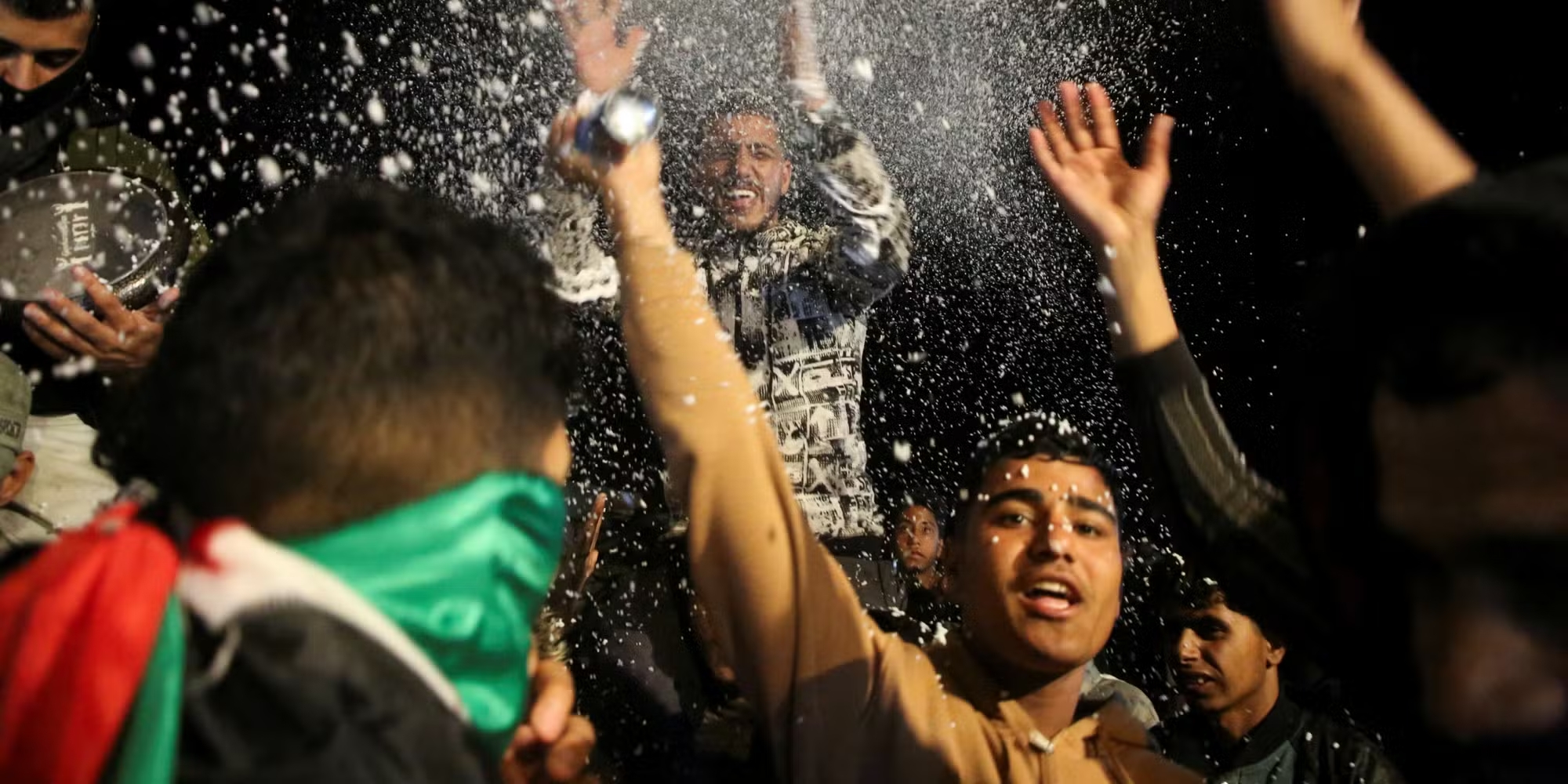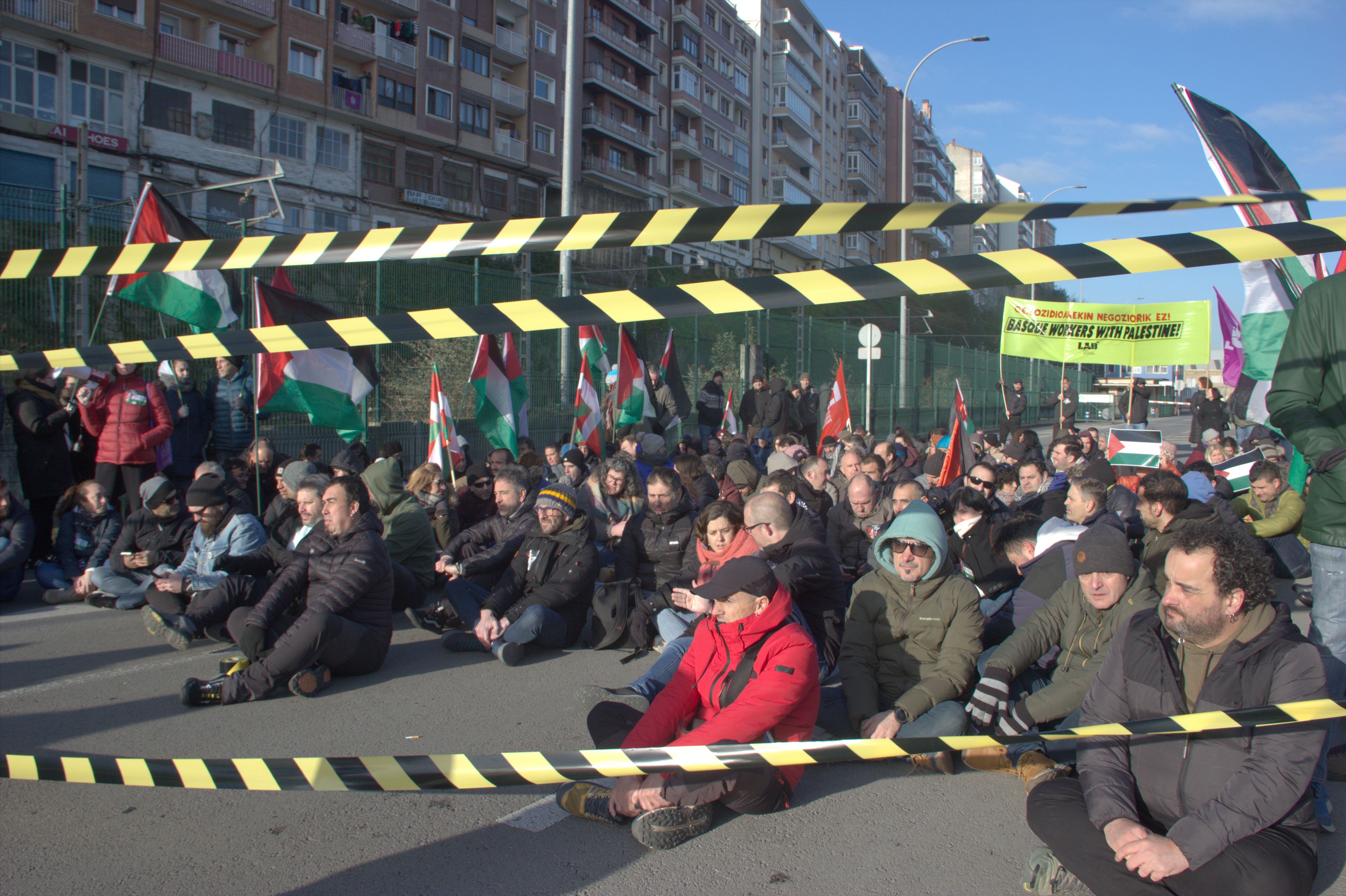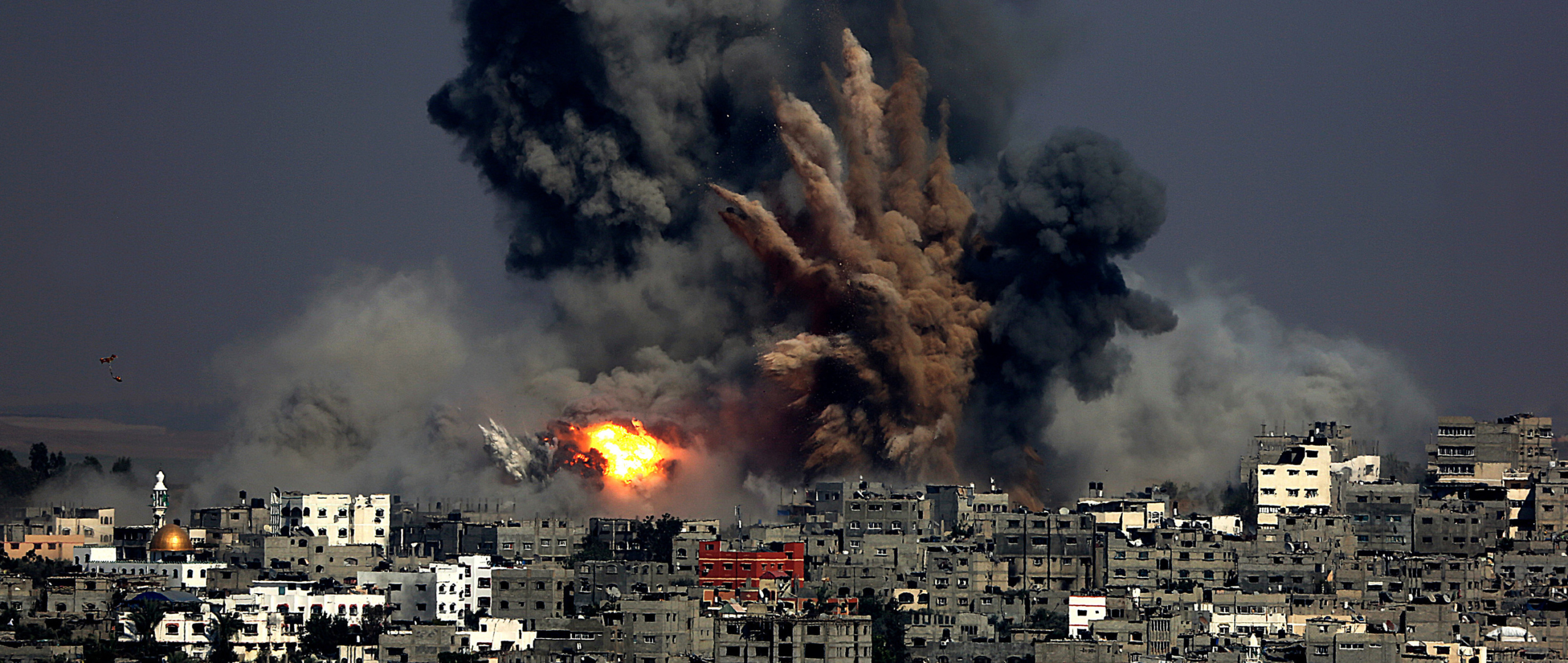2.016 years after the birth of Jesus, last and sad crop of olives Beit Jalan
- Since the Romans brought olive trees in the time of the Herod, the happiest season of the year in many towns of Palestine is that of October-November, the olive harvest. This year's Beit Jalan de Betleem was very sad: The Palestinians intuit that the Israeli army will have the last olive harvest to build its defence wall, occupied by the most opulent fields in the village. Neither the international images nor the eukaryostasis of the Catholic priests, nothing paralyzes the Jewish settlers.
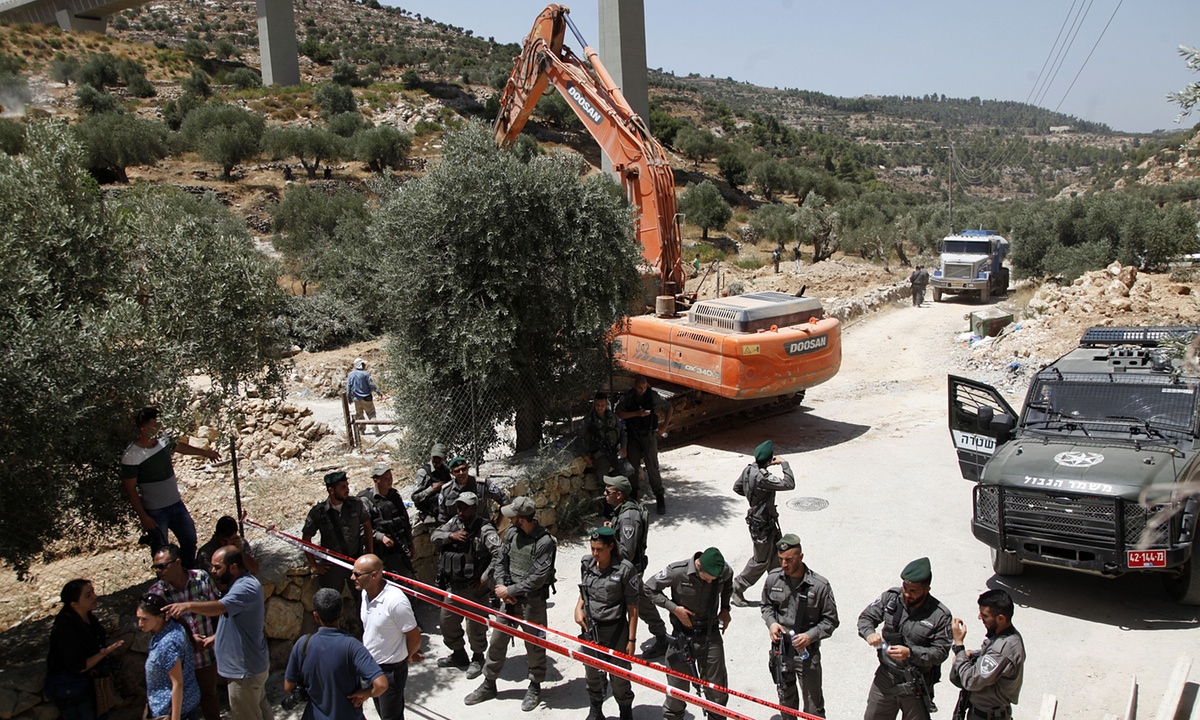
“The Palestinians gather crying over the last crop of olives in the Cremisan Valley,” She Khalel wrote in the Aljazeera.Israel wants to keep the fields that seem to be one of the most mythical oils in the Middle East away from their Palestinian owners forever to prolong apartheid.
The journalist has seen that the olive trees, which have been virtually neglected throughout the year, are unpruned and with the ugdest appearance of the old days. More than 300 hectares of trees, which often give the most beautiful olives, have not been preserved by their owners because of the obstacles imposed by the Jewish army.
Ricardo Jaweejat, from the family that has lived from many generations of olive trees, says: “I haven’t come all year round, look at those non-pruned motives, look at the rubbish they have left in the street. Since the Israelis said they should take ownership of these lands, I have tried not to come, it is dangerous to walk here.”
The Alarde journalist witnessed this. As he performed the report, a Jewish military jeep crossed the road. “We can’t do anything against them. They can come and do or catch whatever they want,” says Jaweejat.
The fact is that of the three security zones established by the agreement between Israel and Palestine, Beit Jala is in area A, fully controlled by the Palestinians. But that's in theory. At the heart of the camp is the illegal Jewish colony Gilo, in which Israel has established a base on a hill to defend it. The movements of the patrols are continuous, as if they were an area C entirely managed by Israel.
Beit Jala is situated in the Cremisan Valley, in a vast valley stretching from Jerusalem to Bethleem. It includes the famous Cremisan shrine, a producer of known wines and oils, today owned by the Salesian priests. Many of them are Christians in the vicinity of Betleem. Throughout Palestine, in 1948 Christians were also 18% and today they have been reduced to 2%, after an exodus that has not been mentioned much.
The web Palestine Monitor has continued during these months the eleventh sanction against the Palestinians for the eviction of the Palestinians in the orchards of Cremisana in Tel Aviv. The military arrived on 17 August with their bulldozer and after three weeks of work, they broke the livelihood of the 58 families of Beit Jala, ripping fruit trees and digging the earth’s crust. Neither the baserritars, journalists and lawyers have been able to see the damage caused for more than a week.
He said from Issa Elshath that for hundreds of years he has worked his ancestors in these fields: “2,000 years ago Jesus sat in the shadow of the olive trees! It's our land, our future, our history, our memory. When I see them cutting and plucking trees, they hurt me like I'm ripped off the parts. I feel a desire to leave, because that's all I have. But I don’t know what our children will do.”
Nine years of conflict with the Israeli Government to prevent the baserritars of Beit Jala, on the pretext of security, from crossing the orchards of the Cremisan Valley the gigantic barriers built by the Palestinian people of the West Bank to separate themselves from the Jewish dwellings and the most fertile lands. Although in April the Supreme Court gave them the right, the Government filed an appeal and in July the Supreme gave the military permission to remove the wall from their rightful place.
Theft of land for security reasons
Jonathan Cook, an English journalist based in Nazareth, writes that during the last weeks of October and November, the valleys and hills of Palestine are filled with families that have come to collect olives, leading a life very similar to that of their ancestors on the feet of young and old olive trees. About the 10 million olive trees in the West Bank, family and community solidarity is celebrated, a communion with nature and its prosperity that has hardly changed in these thousand years. Since the Israeli occupation “the harvest has become a kind of last Palestinian resistance: the individual refuses to leave, the group refuses to ethnic cleansing.”
At the same time, it is of great economic importance, as the daily lives of some 100,000 families are linked to these trees. Oil plays an important role in agriculture, accounting for 13 per cent of Palestine’s Gross Domestic Product (GDP).
But in 1967, after conquering the West Bank, eastern Jerusalem and Gaza, Israel began to require the vegetable gardens and olive groves of the Palestinians, to convert them into state lands, to extract them, to convert them into national parks and to build new villages of Jewish settlers into them. The thousands of torn and burned olive trees can be symbols of ethnic cleansing.
Beit Jala produces the best olives in Palestine, proud locals say they look like “oil with a lemon scent.” “You’ll see the oil every day at all meals, breakfasts, meals and dinners. That’s why it greatly influences the lives of the people of Beit Jala,” said Catholic priest Aktham Hijazim, parish priest. From the outset, Christian priests and nuns have fought against the Israelis’ plans, their photos can be found on the Internet in Mass or in prayer in a peaceful protest against bulldozer and armed patrols in the olive groves.
Although in the July ruling the Israeli Supreme Court ruled that it should depart a little from the wall of apartheid of convents and churches, the priest Aktham continues to defend the protests: “Each of us on his side will earn nothing, neither the shrines nor the people, for they continue to tear the land the same way. Our victory is worth nothing if we do not protect people and the earth.”
Israel is not going to reverse, because its strategy of extending its territory at the expense of the Palestinians is strictly calculated. In the case of Beit Jala, the wall starts the most fertile lands to its rightful owners and leaves them on the other side of the fence in the hands of colonies such as Gilo, which are illegal at first and which, over time, become definitive.
At Beit Jala's oil cooperative, they're also sad that if this year's harvest is bad, they can't wait much better for the next few years. This year there are few descendants of the valley of Cremisan, in the queue of the peasants waiting for them to sew in the mill of Azeitun. Ricardo Jaweejat has become disillusioned with the journalist: He wants to hope that one day his family will return to the Cremisan valley, but he confesses that he has never seen the stolen land returned to his Palestinian owners.









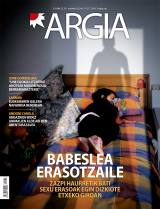


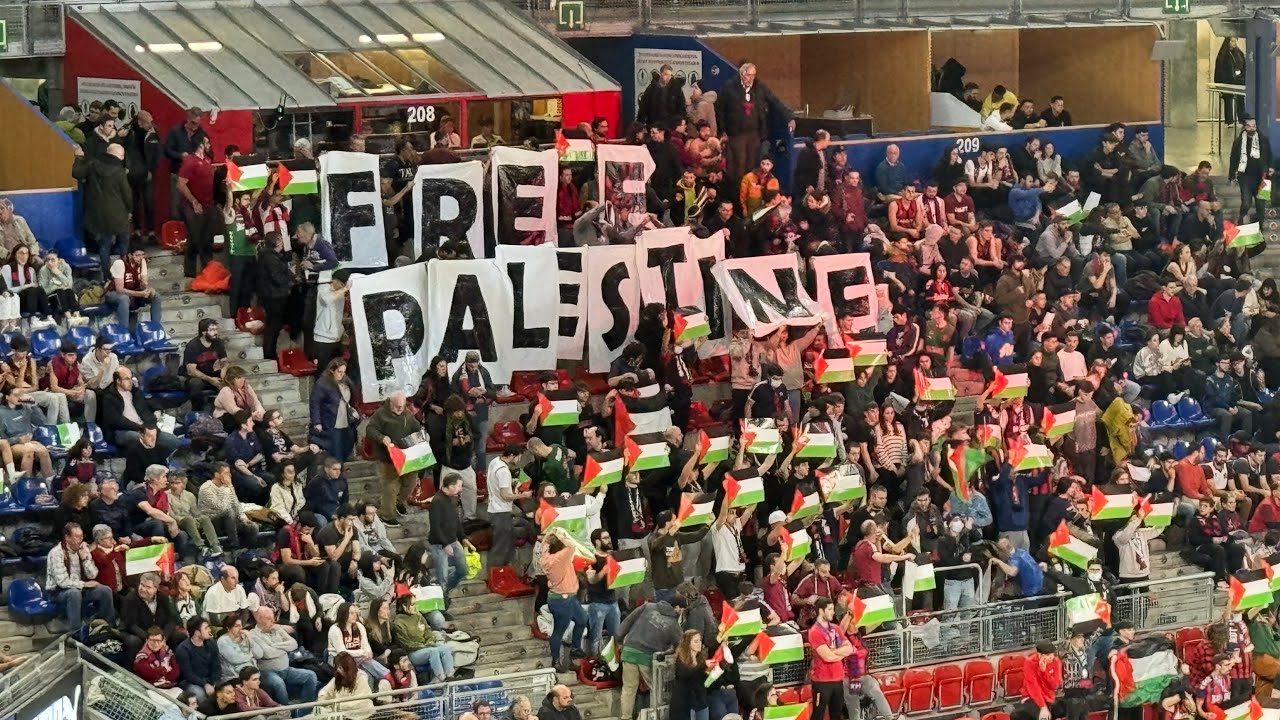



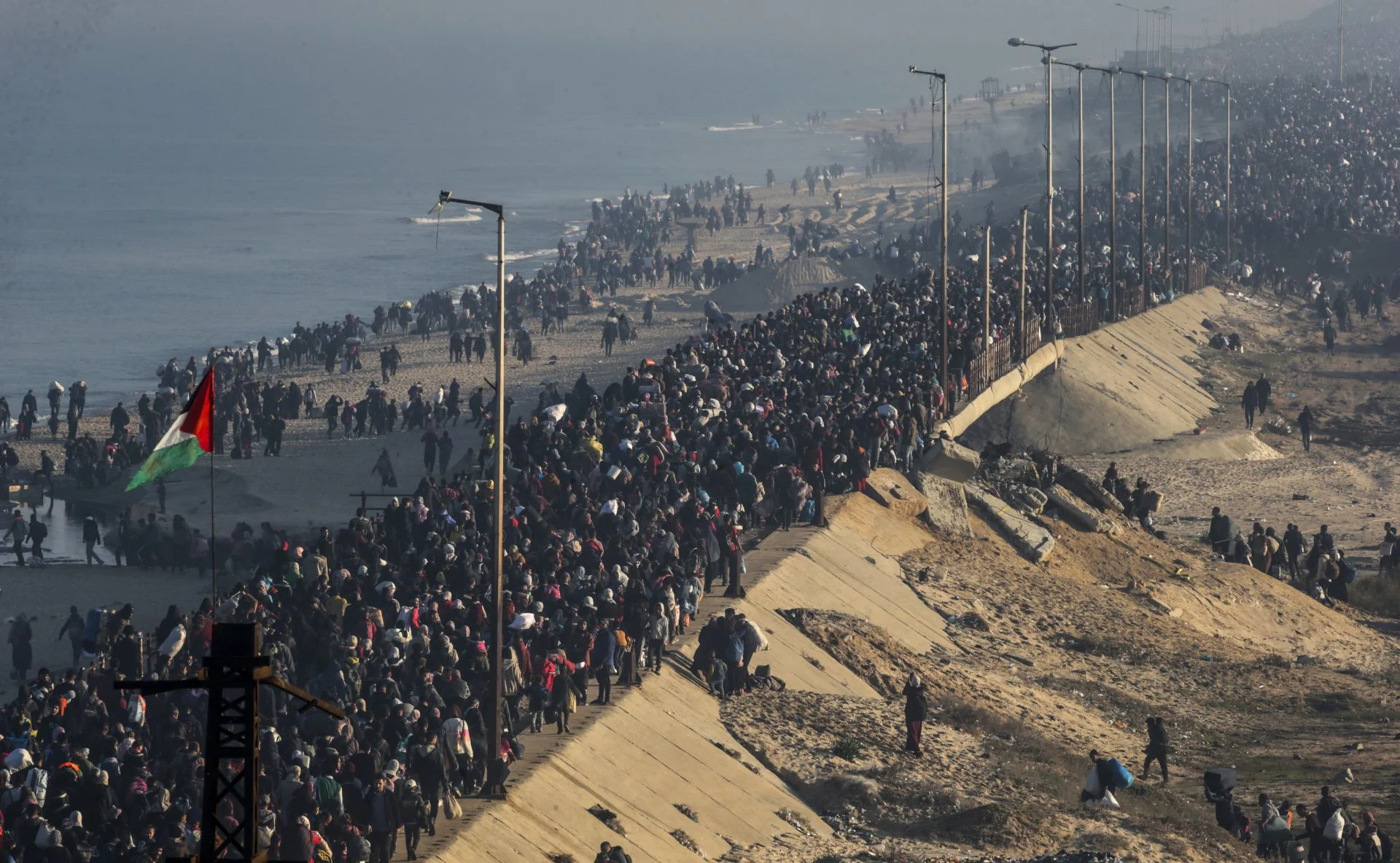
.png)
.jpg)

